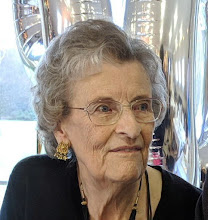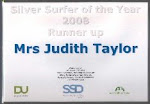 British people are familiar with sight of the London Cenotaph in Whitehall, the focus of the annual ceremony to remember those who were killed serving their country. For a brief moment yesterday I was watching the ceremony on TV, when suddenly the camera focussed in close on the words engraved on the side, below the stone wreath. If I had been asked, I don't believe I would have known what they were, but now I feel I shall not forget them.
British people are familiar with sight of the London Cenotaph in Whitehall, the focus of the annual ceremony to remember those who were killed serving their country. For a brief moment yesterday I was watching the ceremony on TV, when suddenly the camera focussed in close on the words engraved on the side, below the stone wreath. If I had been asked, I don't believe I would have known what they were, but now I feel I shall not forget them. THE GLORIOUS DEAD
THE GLORIOUS DEADWhat, I ask myself, is 'glorious' about dying on the battlefields, or on the home fronts, of wars which are not of your making or choosing. True, many will distinguish themselves with acts of great courage, but the context of their deaths remains the same.
I hear echoes of British jingoism in the words, chosen by Rudyard Kipling ,a year or two after the end of the 1914-1918 war. I feel that it is time to let go of the notion that such deaths are glorious. The words seem designed to conceal the horrendous and wasteful realities of war - indeed, perhaps they were.
I am not suggesting for a moment that we should not remember and honour those who died. And I suppose that at least as long as there are veterans still surviving of the two great world wars, remembrance ceremonies will continue.
But I can't help thinking to myself that a more appropriate inscription would be:
THE WASTED DEAD





7 comments:
I wonder whether I have a different view on war because it was the sacrifice of many lives that allowed me to be here. In fact, I have considerable unhappiness that the US entered WWII so late. So I think of the dead as those who dies saving others and I am, oh, so very grateful.
Yesterday was Kristallnacht, the beginning of a rather short journey to great horror and I thought about the dead yesterday as well, those who died fighting and those who were cruelly tortured and murdered.
Of course,G in Berlin, you are absolutely right. The war against Nazi Germany was one which had to be fought,and the horrors of the battlefield almost pale beside the horrors of Hitler's 'final solution'. And believe me, I too am grateful.
Yes, there are wars and then there are other wars.... I, too, am grateful that you finally found a safe harbor, g in berlin.
I can only sympathize with the tyranny and suffering that has gone on in our world, but when I reflect upon the death toll of soldiers and of people in war-torn homelands,over time, I see such a waste of lives.
annie
Wasted dead, indeed!
Possibly 'wasted' in the sense of 'unfulfilled', not in the sense of 'a waste of time'. It is surely right that the allies fought in WWII but an enormous pity that it was necessary.
Kipling lost his only son in WW I. Much of what he wrote and thought thereafter is explained by his inner guilt at "wangling" a commission for John at the start of the war. The boy would never have got into the army (poor eyesight)if Kipling had not pulled strings.
After that he was a changed man and turned into himself. He began to suffer from digestive problems and eventually died of a perforated stomach ulcer.
Their deaths may be unfulfilled in the sense that they were not able to achieve their mission.
Post a Comment